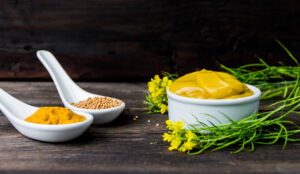Basil is more than just a flavorful herb; it’s a versatile and aromatic plant that has been cherished for centuries. With a variety of types, such as sweet basil, Thai basil, purple basil, and lemon basil, each offering unique flavors and fragrances, basil is a staple in kitchens worldwide. Its culinary uses are endless, and it also boasts an impressive range of health benefits.
Health Benefits of Basil
Beyond its culinary appeal, basil is valued for its potential health-promoting properties. It’s rich in antioxidants and has natural anti-inflammatory effects, which may support overall well-being. Some studies have highlighted basil’s potential in supporting digestive health, relieving stress, and promoting cardiovascular health.
For culinary use, basil is best added near the end of the cooking process to preserve its delicate flavor and aroma. It’s a perfect complement to ingredients like tomatoes, garlic, olive oil, and cheese, making it a key element in classic dishes such as pesto and caprese salad.
Basil also shines in herbal teas, where it can have a calming effect and aid in digestion. While it might not be a significant source of vitamins in larger quantities, its flavor and health benefits make it an excellent addition to any diet.
Vitamin K in Basil: A Nutrient Boost
While basil might not offer large amounts of vitamins compared to vegetables, it does provide a notable boost in vitamin K, particularly in small servings. Vitamin K plays an essential role in blood clotting and bone health, making basil a great, flavorful way to enhance your nutrient intake. If you’re not consuming enough leafy greens, basil is an easy and tasty addition to your meals, supporting both your health and your culinary experience.
Basil’s Antioxidant Power: Combating Oxidative Stress
Oxidative stress happens when there’s an imbalance between free radicals and antioxidants in the body. Free radicals can damage cells, contributing to chronic conditions like cardiovascular disease, cancer, and respiratory issues such as asthma. Managing oxidative stress is vital for maintaining health and preventing disease.
Basil, especially rich in antioxidants like polyphenols, phenolic acids, and flavonoids, can help counteract free radicals and reduce oxidative stress. These antioxidants are known for their anti-inflammatory effects and may contribute to lowering the risk of chronic conditions. Adding basil to your diet can be a delicious way to enhance your overall health.
Anti-Inflammatory and Antiviral Benefits of Basil
Basil, particularly in its essential oil form, contains compounds like rosmarinic acid, caffeic acid, and chicoric acid, which are known for their anti-inflammatory and antiviral properties.
-
Anti-Inflammatory: Basil’s anti-inflammatory compounds may help reduce inflammation associated with chronic conditions like arthritis and ulcers. While animal studies have shown these compounds reduce inflammatory markers, more research is needed in humans to confirm their full benefits.
-
Antiviral: Basil’s antimicrobial properties, particularly from chicoric acid, caffeic acid, and rosmarinic acid, suggest it could help inhibit viral proteins and protect against infections caused by both DNA and RNA viruses. While studies show promising results, further research involving humans is needed to establish the most effective uses.
Conclusion
Basil offers more than just a flavorful addition to your dishes—it carries potential health benefits, especially in terms of inflammation reduction and antiviral properties. While further research is necessary to fully understand its medicinal potential, incorporating basil into your diet can still provide health benefits. However, it should complement, not replace, traditional medical treatments.
Incorporating basil into your meals is a simple way to enjoy both its flavor and health-boosting properties. Whether fresh or in essential oil form, basil’s role in supporting overall wellness is something worth considering!




